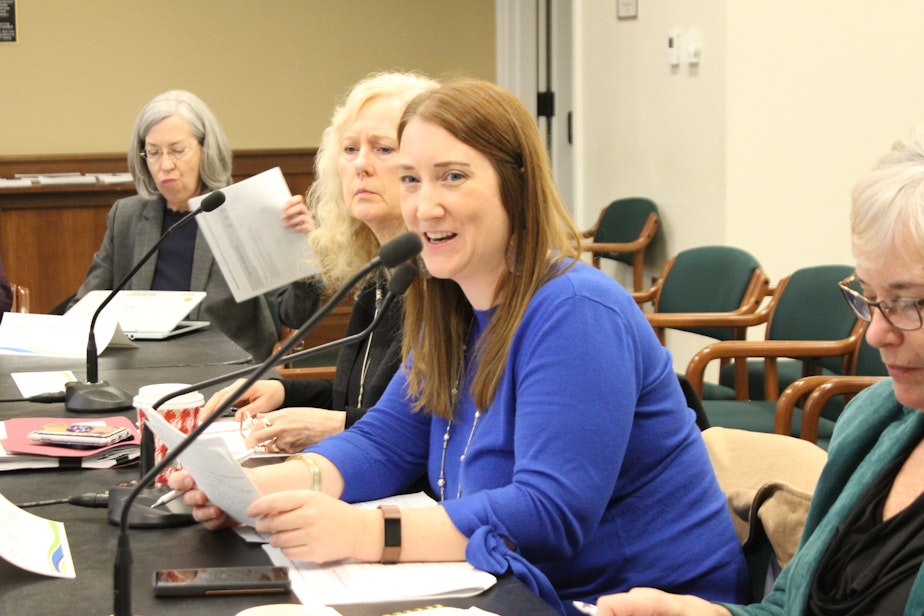Parents would have more rights to help mentally ill teens if this bill passes

Lawmakers in Olympia are holding a public hearing Wednesday on a bill that would expand parents’ rights to access mental health care for their adolescent children.
The bill includes changes long sought by parents, who have argued that state law makes it difficult to help mentally ill teenagers if they refuse to cooperate.
The bill, sponsored by Rep. Noel Frame, D-Seattle, would allow mental health care providers to give limited information to parents about their teens’ mental health treatment, even if the teens object. Currently, providers can share information only if the teen explicitly consents.
Part 1 of this series: Alex was 13 and depressed. So why couldn’t his mom check in with his therapist?
Part 2: Should parents be able to weigh in on teens' mental health treatment?
Part 3: When my son was 12, he turned violent. Life is just now getting better
The law establishing 13 as the age of consent for mental health care dates back to 1985. It was meant to give teens 13 and older the right to access mental health care without their parents’ consent. The intent was to help kids who might be estranged from their parents get mental health treatment on their own.
The law also gives them the right to refuse treatment, and to keep all of their treatment information private, including from their parents.
As rates of anxiety, depression, and other mental disorders have increased among adolescents, more parents are complaining about the restrictions of the law, the bill's supporters said.
Sponsored
“You had parents who desperately wanted to help their children, and because [their children] could say, no, we don’t want to information share with their parents, the parents had no tools to help their children through a behavioral health crisis,” Frame said.
If the bill passes, a teen’s mental health provider could tell parents their teen's diagnosis, treatment plan, prescription information, and safety planning, but only if the provider believes it would benefit the teen. A provider could choose to withhold that information.
Parents would also be able to take their teens to a limited number of outpatient appointments, even if the teen objects. Currently, parents can admit their teens to inpatient treatment against their will only if they are in crisis.
According to Frame, the bill is meant to “create more options for those parents while safeguarding the youth and the providers in the process.”
The legislation would signal a “huge culture shift” in how youth access mental health care, said Peggy Dolane, a parent who has pushed for changes in the law.
Sponsored
“The idea is to open the door more widely so that if a child wants to get help they can," Dolane said. “This needs to happen.”
But what do teenagers think?
Alex, a north Seattle teen who began suffering from depression at the age of 13, said that while he understands the toll a teen's mental health issues can take on parents, it may not help to force them teens to force them into treatment.
“A lot of teens wouldn’t really take the tools that are being forced upon them,” said Alex. We are withholding his last name to protect his privacy.
Allowing therapists to share information with parents might also risk alienating teenagers.
Sponsored
“It could create an even bigger rift between a parent and a child," Alex said.
The legislation is the result of a year-long process involving competing stakeholders, including parents, youth advocates, mental health providers, and others.
Over the course of 21 meetings, they drafted compromise recommendations that were unanimously approved by the Children’s Mental Health Workgroup, a key legislative advisory body.




